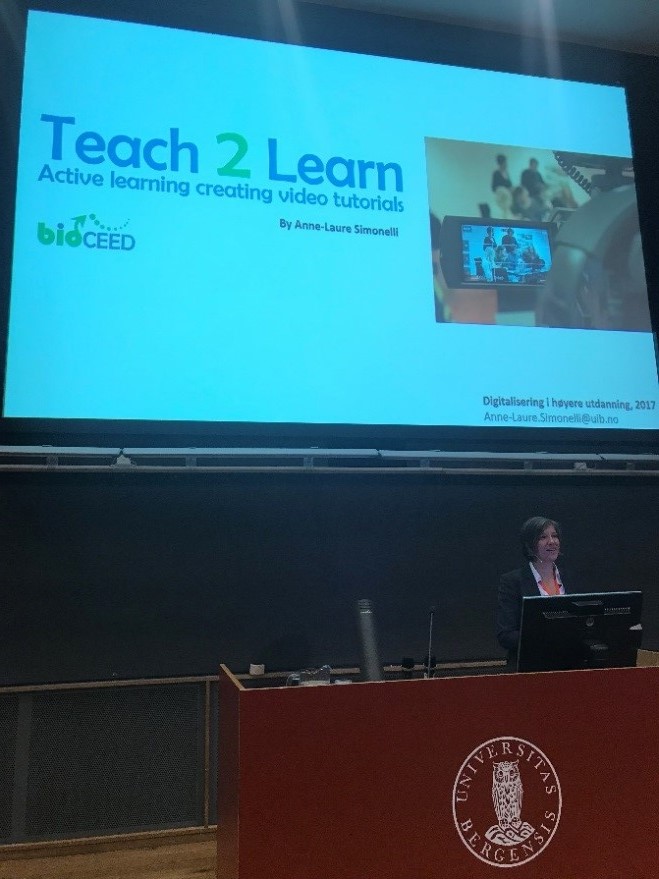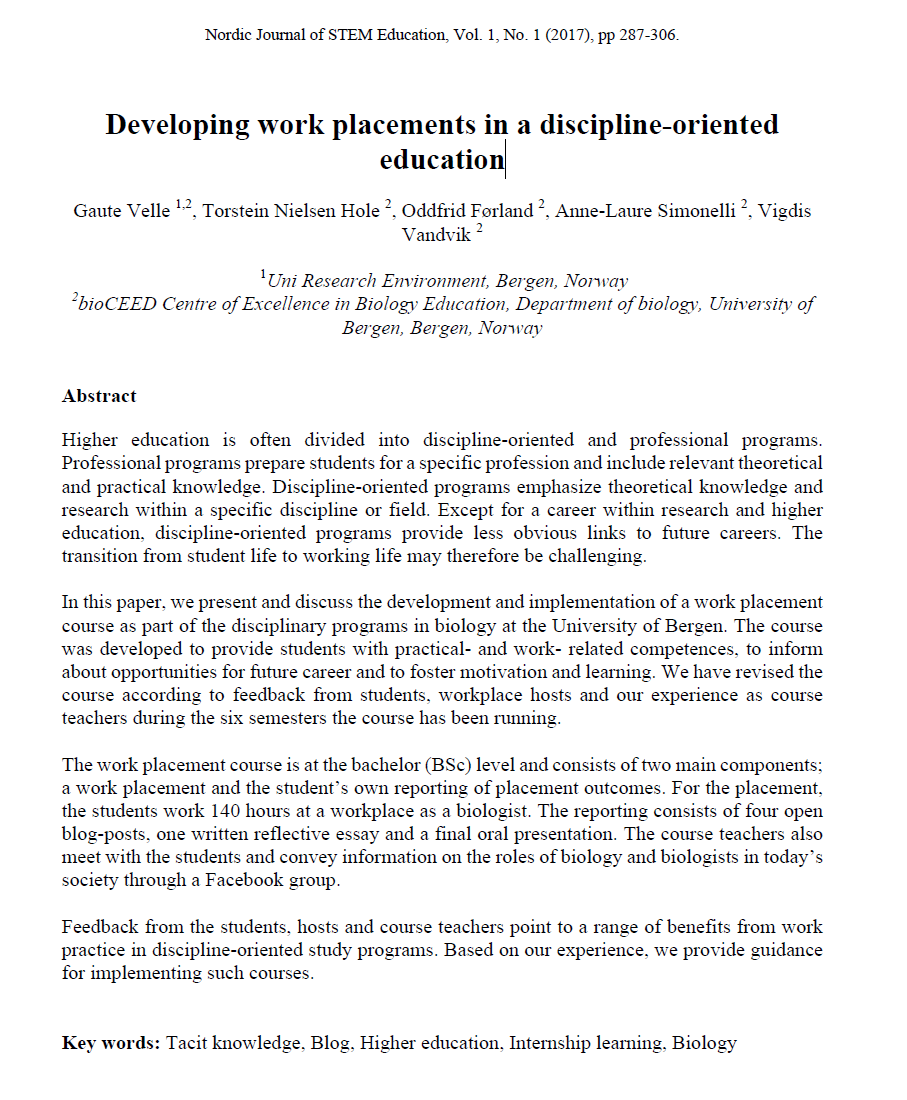Work placement course – Dialogue with hosts
During late November, bioCEED hosted a meeting for hosts and students that are part of the work placement course at the Department of Biology.
Students who enroll in the course spend 140 hours working as a biologist at a workplace. The intention of the dialogue meeting was to continue the development of the course for mutual benefit for students, hosts and course organizers. The meeting took place at the Institute of Marine Research in Bergen and this is the second time we organized such a meeting. Hosts, students and course organizers were well represented. Similar to last year, we plan to implement suggestions from the meeting to the course.
 Initially, the main course organizer gave an account of the student written evaluation of the course, with emphasis on their evaluation of the hosts and the work placement part of the course. This was followed by a round- table sharing of experiences from students, hosts and course organizers. The students told that they are highly satisfied with the opportunity to have an authentic working experience as biologist, and have a steep learning curve. They find the course highly motivating. The hosts are generally also happy to have students. They find it can be challenging to find sufficient time to train the students, but that the students are an asset both socially and when it comes to extra hands and workload that they offer. The course organizers explained how the course has been under constant revision since it was initiated three years back. Revisions are triggered by feedback from students, hosts and pedagogic incentives from the course organizers.
Initially, the main course organizer gave an account of the student written evaluation of the course, with emphasis on their evaluation of the hosts and the work placement part of the course. This was followed by a round- table sharing of experiences from students, hosts and course organizers. The students told that they are highly satisfied with the opportunity to have an authentic working experience as biologist, and have a steep learning curve. They find the course highly motivating. The hosts are generally also happy to have students. They find it can be challenging to find sufficient time to train the students, but that the students are an asset both socially and when it comes to extra hands and workload that they offer. The course organizers explained how the course has been under constant revision since it was initiated three years back. Revisions are triggered by feedback from students, hosts and pedagogic incentives from the course organizers.
Both students and hosts expressed a wish for more mutual information prior to- and during the internship. So far, the hosts write a few sections about themselves and typical tasks that the students are likely to undertake during the work placement. The students select hosts based on this description. The students would prefer more information as basis for their selection of hosts, e.g., about the hosts, tasks that they will perform and expectations when it comes to specific skills. A similar wish was also expressed by the hosts, e.g., that the students may perform certain tasks that require specific skills. It was agreed that the hosts should communicate in clear what skills are needed in the information letter. Also, if there are certain times of year when they specifically need assistance from students. In addition, the course organizers will make a link from the description of hosts and to the student blogs. In the blogs, the hosts and typical tasks are thoroughly described.
The students would also prefer to have more feedback from the hosts during the work placement, e.g., whether they perform up to standards. Similarly, the hosts wonder whether the tasks they offer and the level of the tasks are satisfactory for the students. It was agreed that the course organizers will make a template for a mid-term development discussion between student and host. Such a discussion is also expected to teach about the importance of communication during a professional career. This discussion should be confidential between student and host.
We wish to thank all part for a friendly and constructive meeting and look forward to further cooperation!



